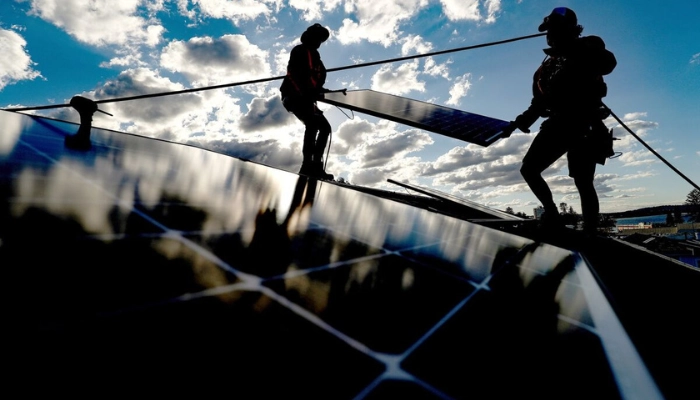The extended periods of higher-stage load shedding over the past year has forced South Africans into action. It is just not feasible to sit around and hope the national power utility fixes the mess as the economy suffers, and so there has been a massive boom in the solar power industry.
Of course, the government’s incentive is designed to encourage solar uptake, but people are generally becoming more conscious about the environment anyway, while the cost of fuel is forcing them to look at renewables over generators. However, a solar installation is not cheap. The value of the equipment has long been an obstacle to many businesses and homes.
Solar installers themselves and financial institutions have come up with innovative ways to overcome this cost hurdle and support greater uptake. Homes and businesses can now rent solar installations for far more palatable sums of money, and many financial institutions have come up with innovative ways to fund installations, including extending mortgages.
The net result has been a massive increase in solar. However, this is South Africa, and all the innovation and goodwill have not gone unnoticed, and criminals have cottoned onto the value of solar panels. Modern installations are designed so they can be put together very quickly, but this means they can also be dismantled very quickly, and so there has been a massive spike in the theft of solar panels from roofs.
There are physical options to secure panels, such as advanced cabling and the likes, but these come at an additional cost burden and so most don’t go down that route. The result: thousands of South African homes and businesses are advertising expensive assets on their roofs to thieves.
A complication is that solar panels only generate electricity during the day. At a home or a business, if there is a dip in power generation it could lead to an investigation which may stop the theft. But at night, when people are sleeping, this won’t be noticed as any power requirements will be met by the backup batteries. It would be outrageous to station a security guard at every installation in the country, so what can homes, businesses, security companies, banks and insurers do?
The answer lies in technology, in the form of the Internet of Things (IoT). At Guardian Eye, we understand that technology enables, and so we have been working to design a way to enable and optimise the security of solar panels. Smart sensors that detect movement and vibrations – and don’t mistake birds for thieves – and tiny self-sustaining cameras that are solar-powered with battery back up , provide a compelling solution to the problem. A solution like this, which is connected to our nerve centre, provides insurers, banks, installers and security companies with options: the alerts can be directed to owners, facility managers or security response teams, or all of them at the same time. The sheer scale of the problem means that technology is the only way to fight it.
Beyond that, if one considers how many installations are out there, there needs to be a way to scale a solution such as this to rapidly reach as many panels as possible. This is where partnerships up and down the supply chain become crucial.
Various providers in the supply chain can all extend the reach. For example, the service could easily be built into a rental or installation contract, or be added to a finance or insurance arrangement for a small monthly subscription fee. Security companies can upsell to existing customers with valuable panels on their roofs. This addresses the problem of theft for the home or business owner, or solar rental company, while simultaneously providing an additional revenue opportunity for a host of players in an increasingly competitive space.
For example, if an insurance company is contracted to insure solar panels, then adding this service onto the contract and requiring it to be linked to a security reaction company, ticks a number of boxes for everyone involved. The homeowner or solar rental company keeps the panels, which due to supply chain pressure are becoming near impossible to replace within reasonable time frames, the insurer averts a massive claim, and the security company now has eyes on the roof and can service its customers better.
The world is well into the fourth industrial revolution, and the days of separating the physical world from the digital realm are well and truly over. This means that services such as security IoT devices that are connected to a nerve centre, can transform a very real problem in the physical world into a viable and compelling solution.



